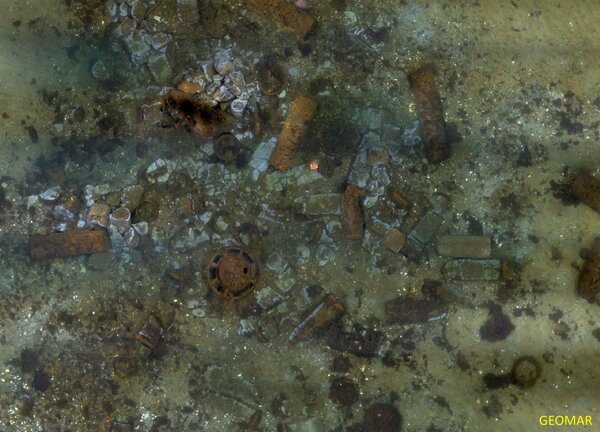Expertise
Management options: possible ways of dealing with old ammunition
Jörn Scharsack, Ulrike Kammann | 25.08.2022
The decision on how to deal with old munitions in the individual dumping areas depends on many factors. Strategies for the clearance of contaminated sites in the North Sea and Baltic Sea are currently being developed.
In its second phase, the joint project DAIMON, with Thünen participation, aimed to develop a guideline for action (Ecotox Toolbox) to deal with marine munition dump sites. The guideline assists responsible persons in politics, industry, state authorities and administration to develop management options for munitions waste in the North Sea and Baltic Sea on a scientific basis. The guide leads from the detection and identification of old munition to chemical and biological aspects and finally to decision-making aids on how best to deal with the ammunition. The guide helps the decision-makers to weigh up between salvaging or detonating, relocating or leaving the ammunition.
Calls for the salvage of contaminated sites are growing louder from the public and political spheres. But such work is neither trivial nor harmless. Precise knowledge of the quantity and quality of the old ammunition and its environmental hazard potential is required before salvage can begin. The BMBF-funded research project CONMAR (CONcepts for conventional MArine Munition Remediation in the German North and Baltic Sea) is currently developing strategies for the clearance of old munitions sites in the North and Baltic Seas. High-resolution images of the seabed (Fig. 2 and 3), taken by GEOMAR, form an important basis for planning clearance activities. Within the project, the Thünen Institute for Fisheries Ecology investigates which deposits pose the greatest potential risks to fish and the marine environment.
An important part of the project is the stakeholder dialogue with representatives from the federal and state governments, industry, science and associations (environment, fisheries) with the aim to bring together prioritisations of different interest groups in solving the munitions problem.







